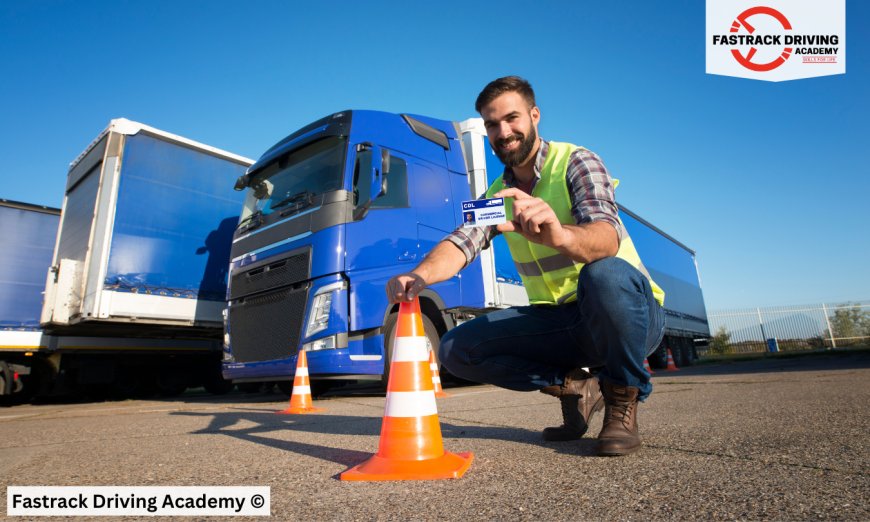The Importance of Defensive Driving for New Drivers
Enhance your driving skills with defensive driving techniques! Learn how to prevent accidents, build confidence, and develop safe driving habits for new drivers.

Defensive driving is a crucial skill that every new driver should learn and practice. It goes beyond basic driving skills and involves anticipating potential hazards and taking proactive steps to avoid accidents. Here’s why defensive driving is important for new drivers:
1. Prevents Accidents
The primary goal of defensive driving is to reduce the risk of accidents. New drivers are more likely to make mistakes due to inexperience, but defensive driving can help them avoid dangerous situations. By:
- Staying alert to other drivers’ actions
- Maintaining a safe following distance
- Scanning the road ahead and behind new drivers can react quickly to sudden changes in traffic or road conditions, which can prevent accidents before they happen.
2. Builds Confidence on the Road
For new drivers, gaining confidence is essential. Defensive driving techniques, such as proper lane positioning, maintaining control during unexpected situations, and anticipating hazards, help them:
- Feel more in control of the vehicle.
- Gain a better understanding of how to react to other drivers' mistakes.
- Develop better decision-making skills behind the wheel. Confidence comes from practice, and defensive driving teaches drivers how to navigate challenging road conditions calmly and effectively.
3. Encourages Safe Driving Habits
Defensive driving encourages habits that lead to safer driving over the long term. New drivers learn to:
- Signal early and properly when turning or changing lanes.
- Follow speed limits, adjusting for weather or traffic conditions.
- Use mirrors and check blind spots frequently to be aware of their surroundings. These habits not only keep the driver safe but also make the roads safer for everyone.
4. Reduces Stress and Road Rage
Driving can be stressful, especially for those who are new to it. Defensive driving helps reduce that stress by teaching drivers to:
- Stay calm in traffic jams or when other drivers are aggressive.
- Avoid confrontations with reckless or impatient drivers by staying focused on safety.
- Handle stressful situations such as tailgating or being cut off without reacting emotionally. This calm and controlled approach helps prevent road rage and makes driving a more pleasant experience.
5. Promotes Better Decision-Making
New drivers often face split-second decisions on the road. Defensive driving trains them to make smart, safe decisions by:
- Assessing risks and deciding how to respond.
- Thinking ahead, such as anticipating a vehicle suddenly braking or merging.
- Reacting appropriately to unexpected hazards like pedestrians or cyclists. Being prepared to make quick, informed decisions can be the difference between avoiding an accident or being involved in one.
6. Improves Awareness of Surroundings
One of the core principles of defensive driving is staying aware of your surroundings at all times. This includes:
- Watching for pedestrians, cyclists, and animals that may enter the roadway unexpectedly.
- Monitoring weather conditions and adjusting driving behavior accordingly.
- Observing the actions of other drivers, such as erratic or dangerous behavior. Heightened awareness allows new drivers to predict and avoid potential problems before they occur.
7. Protects Against the Actions of Other Drivers
New drivers can’t control how others behave on the road, but defensive driving teaches them to be prepared for the unexpected. Defensive drivers are always ready to:
- React to sudden stops, lane changes, or aggressive driving.
- Adjust their driving to avoid unsafe situations, such as staying clear of speeding drivers or those swerving in traffic.
- Anticipate common mistakes made by others, such as failing to yield or running red lights. By being proactive, new drivers can protect themselves from the careless actions of others.
8. Helps Avoid Traffic Violations
New drivers are often still learning the rules of the road, and defensive driving reinforces good behavior that helps avoid traffic tickets or penalties. By:
- Following traffic laws closely, such as obeying speed limits and traffic signals.
- Staying within marked lanes and using signals properly.
- Avoiding distracted driving, such as texting or eating behind the wheel. New drivers can avoid citations that may lead to higher insurance costs or a suspended license.
9. Improves Fuel Efficiency
Defensive driving isn’t just about safety—it can also save new drivers money on fuel. Driving defensively includes:
- Avoiding sudden acceleration or braking, which wastes fuel.
- Maintaining a steady speed, which improves fuel efficiency.
- Planning routes to avoid heavy traffic, reducing time spent idling. Safe, smooth driving results in less wear and tear on the vehicle and fewer stops at the gas pump.
10. Leads to Long-Term Driver Safety
The habits new drivers learn through defensive driving stay with them for life. By adopting these skills early on, new drivers:
- Develop a mindset focused on safety, reducing the likelihood of accidents over time.
- Learn to adapt to different driving environments, such as busy city streets or rural roads.
- Become more responsible drivers, contributing to safer roads for everyone.
Conclusion
Defensive driving is essential for new drivers because it helps them stay safe, build confidence, and avoid accidents. By anticipating potential hazards, staying aware of their surroundings, and making smart decisions, new drivers can develop the skills they need to be safe and responsible behind the wheel for years to come.
What's Your Reaction?
































